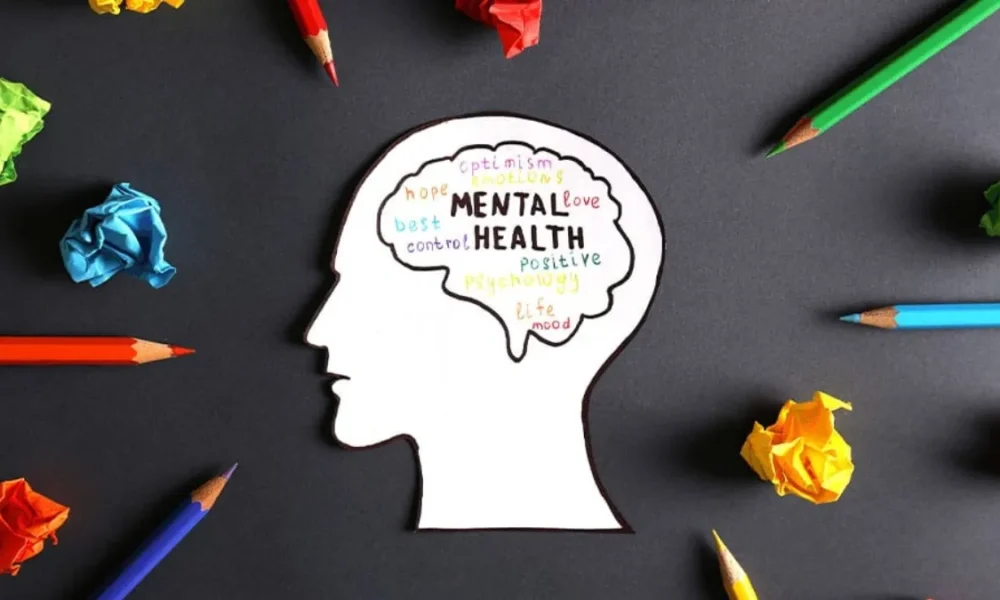Last Updated on May 22, 2025 by Kavya K
Mental health is an integral part of our overall well-being, yet it is often neglected in the hustle and bustle of daily life. Many people focus on physical health or career goals, often overlooking the mental and emotional aspects of their health. The good news is that improving your mental health doesn’t have to involve drastic changes or a complete lifestyle overhaul. Instead, small, consistent daily adjustments can lead to significant improvements in your mood, stress levels, and overall mental clarity. In this article, we’ll explore simple yet effective daily lifestyle changes that can have a profound positive impact on your mental health.
Start Your Day with a Mindful Morning Routine
How you start your day can set the tone for the rest of it. A chaotic, rushed morning often leads to a day filled with stress, anxiety, and poor decision-making. Starting your day with a mindful morning routine, however, can help you feel more centered and prepared for whatever challenges may come your way. Begin by waking up earlier to give yourself time for calm reflection before diving into the day’s activities. Consider engaging in activities such as deep breathing exercises, meditation, or light stretching to help you ground yourself in the present moment.
A mindful morning routine helps reduce stress hormones like cortisol and promotes a calm, focused mindset. If you can incorporate positive affirmations or gratitude journaling into your morning routine, it can further boost your mental health. Gratitude journaling, in particular, has been shown to increase feelings of positivity, improve mood, and reduce negative thinking patterns, which can contribute to long-term mental well-being.
Prioritize Regular Physical Activity
Exercise is not just good for your body; it’s also a powerful tool for enhancing mental health. Regular physical activity has been shown to boost the production of endorphins, the body’s natural “feel-good” chemicals. Whether it’s going for a brisk walk, engaging in a yoga session, or lifting weights, physical activity plays a significant role in alleviating symptoms of anxiety and depression. Exercise helps to reduce stress, improve sleep quality, and increase overall mood, creating a positive feedback loop that benefits your mental state.
The key to using exercise for mental health improvement is consistency. You don’t have to engage in intense workouts every day; instead, aim for at least 30 minutes of moderate physical activity, such as walking or cycling, most days of the week. Exercise doesn’t have to be something you dread; find an activity you enjoy, whether it’s dancing, hiking, or swimming. When exercise becomes something fun and rewarding, you’re more likely to stick with it in the long run, reaping its mental health benefits over time.
Maintain a Balanced Diet
What you eat directly affects how you feel. The link between diet and mental health is well-documented, with certain nutrients playing a crucial role in brain function and mood regulation. A well-balanced diet that includes plenty of fruits, vegetables, whole grains, lean proteins, and healthy fats can help regulate your mood, reduce anxiety, and improve cognitive function. Nutrients such as omega-3 fatty acids, magnesium, and vitamins B and D have been shown to have a positive impact on mental health.
On the other hand, a poor diet filled with processed foods, sugar, and unhealthy fats can contribute to feelings of sluggishness, irritability, and mental fog. Simple changes, such as swapping sugary snacks for fruits or opting for whole grains instead of refined carbohydrates, can make a noticeable difference in your energy levels and mood. Additionally, staying hydrated throughout the day is crucial for mental clarity, as dehydration can lead to irritability and difficulty concentrating.
Get Enough Sleep and Rest
Sleep is often overlooked as a key component of mental health, yet it plays an essential role in emotional regulation and cognitive function. Lack of sleep or poor-quality sleep can lead to heightened stress, anxiety, and depression, while adequate rest helps to restore mental energy and improve mood. Establishing a consistent sleep routine can significantly impact your mental health. Aim for 7-9 hours of sleep per night, and try to keep a regular bedtime and wake-up time, even on weekends.
To improve your sleep quality, create a relaxing pre-sleep routine that helps signal to your body that it’s time to wind down. Avoid screens for at least an hour before bed, as the blue light emitted by phones, tablets, and computers can interfere with melatonin production, making it harder to fall asleep. Instead, consider reading a book, taking a warm bath, or practicing relaxation techniques such as deep breathing or progressive muscle relaxation to prepare your body for restful sleep. The more consistent and restful your sleep patterns are, the better your mental health will be.
Manage Stress with Relaxation Techniques
Stress is an inevitable part of life, but how you respond to it can make a world of difference to your mental health. Chronic stress can lead to burnout, anxiety, and depression, so learning how to manage stress is crucial for maintaining mental well-being. Incorporating relaxation techniques into your daily routine can help you better cope with stress and prevent it from taking a toll on your mind and body.
Techniques like deep breathing, meditation, and mindfulness can activate the body’s relaxation response, reducing heart rate and lowering blood pressure. Setting aside a few minutes each day to practice mindfulness or engage in relaxation exercises can help you become more aware of your stress levels and develop a sense of control over your reactions. Yoga, tai chi, and progressive muscle relaxation are also great options for managing stress, as they combine movement, breathwork, and mindfulness to promote relaxation and emotional balance.
Foster Social Connections
Human connection is a fundamental aspect of mental health. Maintaining strong social connections and having a support system can reduce feelings of loneliness and improve emotional well-being. Whether it’s through spending time with friends and family, joining a club, or participating in online communities, nurturing your social life is essential for mental health. Social interactions provide emotional support, offer opportunities for fun and laughter, and create a sense of belonging, which are all vital for reducing stress and improving mood.
If you’re feeling isolated or disconnected, consider reaching out to a friend or family member for a chat or planning a social activity. If in-person interactions are difficult, make use of video calls, phone calls, or social media to stay in touch with loved ones. Having someone to talk to can provide a sense of comfort and help you process difficult emotions. Furthermore, surrounding yourself with positive, supportive people can significantly reduce stress and anxiety, making it easier to navigate life’s challenges.
Set Boundaries and Prioritize Self-Care
In today’s fast-paced world, many people struggle with overcommitting themselves, whether it’s to work, social obligations, or personal responsibilities. Constantly being “on” can lead to burnout and negatively impact your mental health. Setting boundaries is essential for protecting your mental health and ensuring you have enough time for yourself. Learn to say no when necessary and prioritize activities that bring you joy, relaxation, and fulfillment.
Incorporating self-care into your daily routine is a powerful way to nurture your mental health. This can involve activities like taking a relaxing bath, spending time in nature, pursuing a hobby, or simply taking a break to relax and recharge. The key is to make self-care a regular part of your life rather than an occasional treat. By making time for yourself each day, you’re prioritizing your emotional well-being and giving yourself the opportunity to rest and rejuvenate.
Practice Positive Thinking and Self-Compassion
The way we talk to ourselves has a significant impact on our mental health. Negative self-talk can exacerbate feelings of stress, anxiety, and depression, while practicing positive thinking and self-compassion can lead to improved emotional resilience and a healthier mindset. Start by paying attention to your inner dialogue and challenging negative thoughts. Instead of focusing on your shortcomings or mistakes, shift your attention to your strengths and accomplishments.
Self-compassion involves treating yourself with the same kindness and understanding that you would offer to a friend. When you make a mistake or face a challenge, instead of being harsh on yourself, practice self-compassion by acknowledging the difficulty and offering yourself encouragement and understanding. Over time, this shift in mindset can help you build a more positive and supportive relationship with yourself, reducing mental strain and fostering a greater sense of well-being.
Conclusion: Small Changes for Big Impact
Improving your mental health doesn’t require drastic measures. By making simple, intentional daily changes to your lifestyle, you can significantly improve your mood, reduce stress, and enhance your overall well-being. Whether it’s starting your day with a mindful routine, prioritizing regular physical activity, maintaining a balanced diet, or setting aside time for relaxation and self-care, each small adjustment contributes to a larger shift toward better mental health. Remember, consistency is key, and by incorporating these changes into your daily life, you’ll gradually create a solid foundation for improved mental health that can positively impact every aspect of your life.










